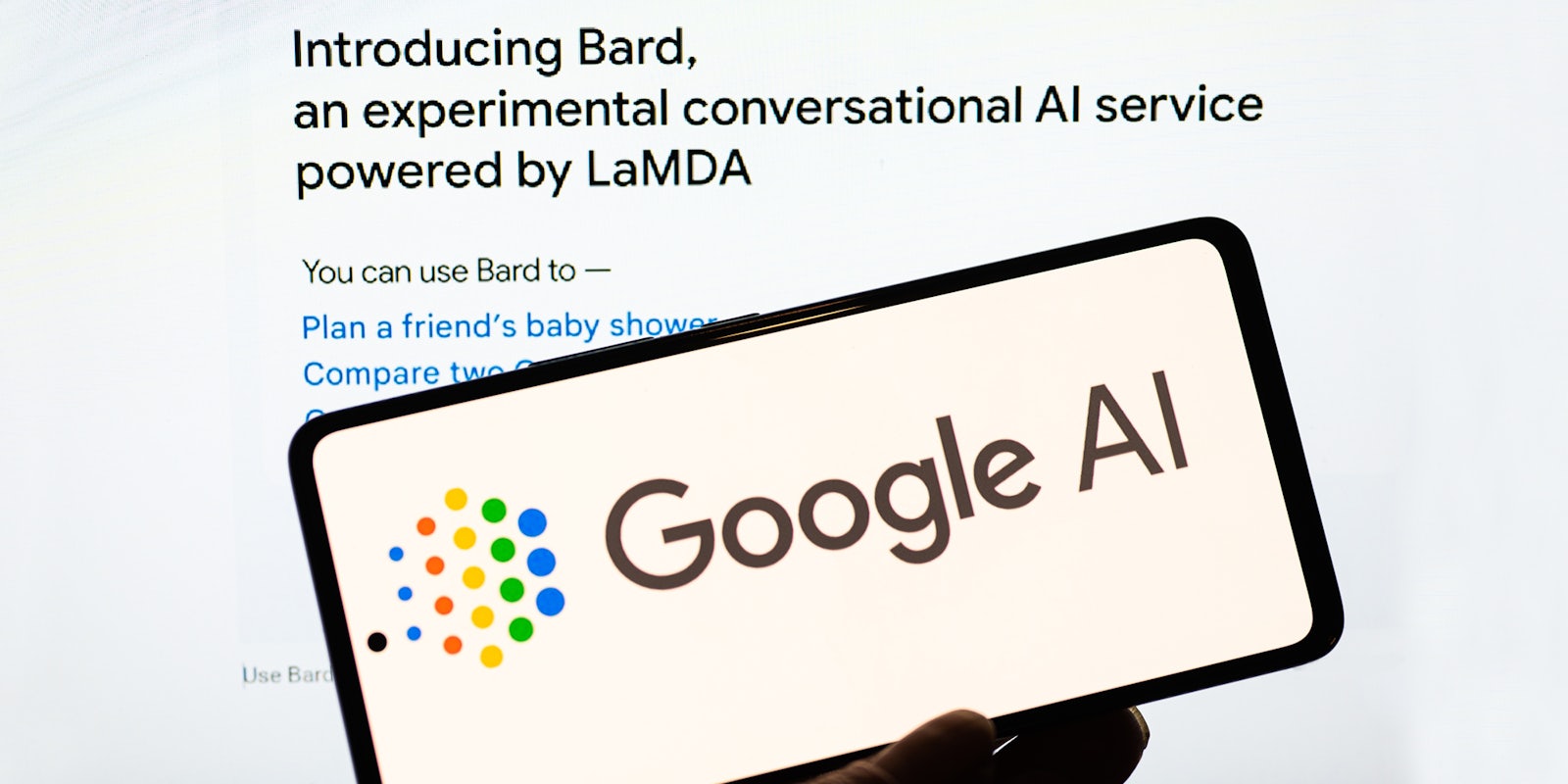If there’s one hallmark of America’s most innovative sector—big tech—it’s that when one company drops a revolutionary product that disrupts the industry, every other company instantly scrambles to build a copycat that attempts to suck up whatever new market share that developed.
That’s progress and ingenuity among America’s brightest minds: building our future by seeing what someone else does, then stealing it and delivering a worse product that, due to their omnipotence in the market, Americans are forced to use.
Hey, speaking of which, Google released Bard this week.
Over the past several months, the internet has been captivated by ChatGPT, OpenAI’s extremely easy-to-use, fun, and revelatory chatbot. Naturally, as people speculated it could change the game when it came to search engine use online, Alphabet, owner of Google, the nation’s most dominant search engine, couldn’t idly stand by
In a blog post about the release, Alphabet CEO Sundar Pichai said that “it’s a really exciting time to be working on these technologies as we translate deep research and breakthroughs into products that truly help people.”
Unfortunately, for the company, in its video releasing Bard, its new AI bot got some stuff wrong, as first noticed by Reuters.
In the launch video, a hypothetical question was asked of Bard, “What new discoveries from the James Webb Space Telescope (JWST) can I tell my 9-year-old about?” Bard responded that the JWST took the very first pictures of a planet outside our own solar system.
That’s wrong, as pointed out by a number of astronomers who took photos of planets over a decade prior to the JWST’s launch.
One astronomer went so far as to say every fact dropped by Bard was wrong, although he admitted he was being nitpicky.
In the blog post announcing its launch, Pichai admitted that the AI was only a test release and that it was working to troubleshoot it before a wider public launch.
Perhaps Google could have asked ChatGPT the same question to double-check its promotional material because OpenAi’s bot didn’t make the same mistake.
But that’s the price of progress and innovation.



